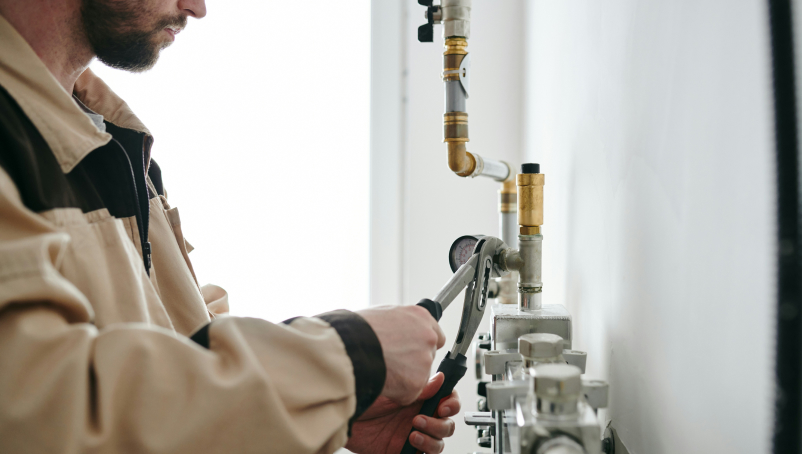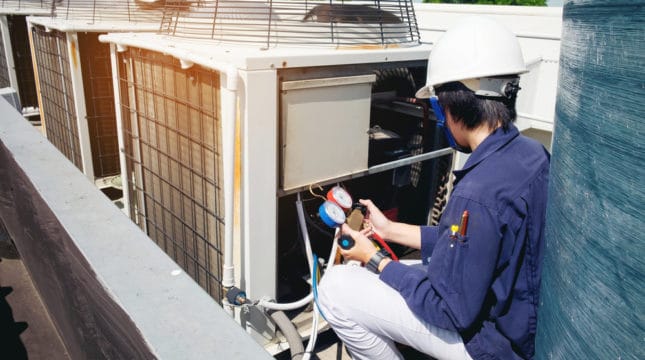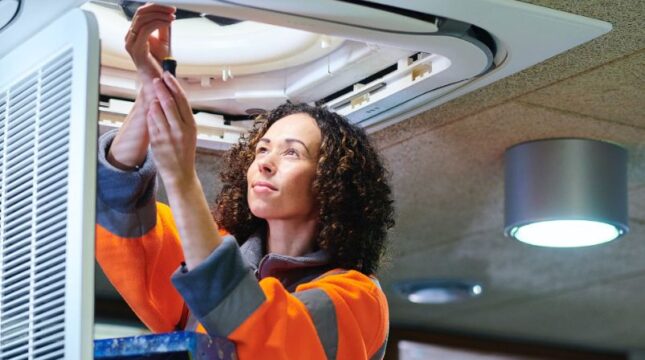Do you need a license for HVAC work in Illinois?
Illinois keeps it simple: you don’t need a state license to work as an HVAC contractor. Not even the big city of Chicago has an HVAC licensing requirement. But each city and county sets its own rules, and some jurisdictions may require you to jump through a few hoops before starting work.
EPA Certification
You won’t find any state-level Illinois HVAC license requirements, but you may need a specific federal certification — the EPA Section 608 certification. It’s a federal requirement for anyone handling refrigerants and applies everywhere in the U.S.
Illinois HVAC technicians must obtain the certification to work with refrigerants. This certification, issued by the Environmental Protection Agency, ensures technicians understand refrigerants’ proper handling and disposal.
There are different levels of certification, including Type I (for small appliances), Type II (for high-pressure systems), and Type III (for low-pressure systems). To get certified, you must pass an exam covering federal regulations, refrigerant types and safety procedures. If you want to work with refrigerants, this is one of the most common HVAC certifications to obtain.
What kind of insurance does an HVACR contractor need in Illinois?
You may still need to have HVAC contractor insurance even though Illinois doesn’t have HVAC license requirements. Your coverage needs vary based on whether you’re a solo operator or managing a team, as well as the types of HVAC projects you take on.
Workers’ Compensation insurance
Workers’ compensation insurance in Illinois isn’t optional if you have employees. The state wants to make sure your team stays protected if they get hurt on the job.
HVAC work involves lifting heavy equipment, dealing with electrical components and sometimes working in tight spaces. One wrong move, and someone could end up with medical bills and missed work days.
Learn more about workers’ compensation for contractors.
General Liability insurance
General liability insurance helps protect you from the everyday risks of running an HVAC business. Although having a policy doesn’t usually fall under a legal mandate, some cities can ask for proof of minimum coverage amounts. This policy can help provide coverage if someone other than an employee claims that your company’s actions caused them injury or property damage.
For example, to work on HVAC systems in Springfield, your policy needs at least $100,000 in coverage for injuries to one person, $300,000 if multiple people get hurt in one incident, and $100,000 for property damage per incident.
Learn more about general liability insurance for contractors.
Commercial Property insurance
Commercial property insurance should be on your radar if you run your HVAC business from a shop or warehouse in Illinois. It helps protect more than your building; it can help cover everything from your stockpile of replacement parts to that pricey inventory of new units waiting for installation.
Business Owner’s Policy
A business owner’s policy, or BOP insurance, provides broad coverage of general liability and commercial property policies combined in a single, cost-efficient bundle. It can help cover damage that you or your employees may accidentally cause to another person’s property and help protect your business equipment in the event of a fire or other covered event.
Tools and Equipment insurance
Ever priced out a commercial HVAC diagnostic scanner? You could buy a decent used car for what some of these tools cost. Tools and equipment insurance isn’t the most exciting thing to think about, but your van is basically a rolling hardware store packed with specialty equipment that took years to collect. Without this coverage, you’d have to pay out of pocket to replace stolen or damaged items.
Commercial Auto insurance
Speaking of your work vehicle, picture this: you’re rushing to an emergency call in downtown Chicago during rush hour, and your ladder shifts and clips another car. Or maybe you’re hauling a new furnace to a job in Peoria when someone cuts you off, causing a fender bender.
In these situations, your personal auto insurance may not cut it. You’ll need commercial auto insurance to help protect your vehicle and its contents.
Illinois requires drivers to have the following minimum coverage amounts:
- $25,000 for each person in an accident;
- $50,000 for all persons in any one accident; and
- $20,000 for property damage to another person.
How to get an HVAC license in Illinois
Beyond the EPA certification, many Illinois municipalities set their own rules. Take Chicago, for example. The state’s largest city doesn’t offer licensing to work in the HVAC industry, but you’ll need a license from the city before doing any work that requires a building permit.
This means you may need an Illinois general contractor license to replace or install mechanical equipment in Chicago, especially if you’re working with a hardwired electrical connection instead of a cord and plug.
The state’s capital takes a different approach. To work HVAC systems in Springfield, you must first register with the city’s Building and Zoning Department and pass an exam. You’ll also need to show proof of Illinois business insurance.
Illinois HVAC training programs
Training is another important step to being an HVAC contractor. After all, you can’t perform the work if you don’t know how to do it. You generally have two options to learn the HVAC trade:
- Attend a community college, technical collage or trade school.
- Learn on the job by becoming an entry-level worker for an HVAC company.
If you choose to get a post-secondary degree or certificate, look for a program approved by HVAC Excellence or the Partnership for Air-conditioning, Heating, Refrigeration Accreditation (PAHRA). These are the two primary organizations that review and approve HVAC programs in the US.
While the state of Illinois doesn’t require it, national HVAC certification can boost your career prospects. Many pros in the state earn certification from the North American Technician Excellence (NATE), American Society of Heating, Refrigeration and Air-Conditioning Engineers (ASHRAE), and other professional organizations.
Timeline for becoming an HVAC contractor
Since Illinois HVAC licensing doesn’t exist at the state level, how long it takes to start your HVAC career depends on getting your EPA Section 608 certification and meeting any local requirements in your area to become an HVAC technician.
Most technicians can prepare for and pass the EPA exam in two to three months. But if you’re planning to work in Chicago, you may also need to factor in extra time to become a general contractor — it hinges on the type of work you want to do.





